-
 Bitcoin
Bitcoin $96,967.1185
-0.97% -
 Ethereum
Ethereum $2,671.8672
-2.29% -
 XRP
XRP $2.5695
-4.76% -
 Tether USDt
Tether USDt $1.0002
0.01% -
 BNB
BNB $645.6047
-1.25% -
 Solana
Solana $171.2167
-1.05% -
 USDC
USDC $1.0000
0.01% -
 Dogecoin
Dogecoin $0.2462
-2.20% -
 Cardano
Cardano $0.7733
-3.19% -
 TRON
TRON $0.2391
-2.12% -
 Chainlink
Chainlink $17.7376
-2.28% -
 Sui
Sui $3.3727
-1.65% -
 Avalanche
Avalanche $24.6569
-0.32% -
 Stellar
Stellar $0.3296
-5.06% -
 Litecoin
Litecoin $130.0046
2.52% -
 Toncoin
Toncoin $3.6504
1.46% -
 Shiba Inu
Shiba Inu $0.0...01532
-0.97% -
 UNUS SED LEO
UNUS SED LEO $9.6755
-0.52% -
 Hedera
Hedera $0.2125
-2.94% -
 Hyperliquid
Hyperliquid $24.8232
0.91% -
 Polkadot
Polkadot $5.1674
3.43% -
 MANTRA
MANTRA $7.5034
-0.01% -
 Bitcoin Cash
Bitcoin Cash $320.8281
-0.64% -
 Ethena USDe
Ethena USDe $0.9978
-0.18% -
 Bitget Token
Bitget Token $4.7462
4.95% -
 Uniswap
Uniswap $8.9431
-4.59% -
 Dai
Dai $0.9997
-0.07% -
 Monero
Monero $228.7110
-0.47% -
 NEAR Protocol
NEAR Protocol $3.3985
0.84% -
 Pepe
Pepe $0.0...09371
-0.86%
What is the role of oracle in DeFi
Oracles serve as crucial data providers for DeFi applications, ensuring that smart contracts operate with accurate and reliable information from the real world.
Feb 20, 2025 at 11:42 pm

Key Points
- Oracles provide real-world data and information to DeFi applications.
- They ensure the accuracy and verifiability of data used in DeFi protocols.
- Types of oracles include centralized, decentralized, and hybrid models.
- Choosing the right oracle for a specific DeFi application is crucial.
- Factors to consider when choosing an oracle include security, reliability, transparency, and cost.
Role of Oracles in DeFi
1. Data Provision for Smart Contracts
- Smart contracts require data from the real world to execute their functions.
- Oracles collect and provide this data to smart contracts, ensuring their operation based on current and accurate information.
2. Ensuring Data Availability and Accuracy
- Oracles ensure the availability and accuracy of data used in DeFi applications.
- They act as trusted intermediaries, verifying and aggregating data to mitigate information asymmetry.
3. Enhancing Transparency and Auditability
- Oracles provide transparent and auditable processes for data collection and transmission.
- This promotes trust among DeFi users and allows for greater accountability.
Types of Oracles
1. Centralized Oracles
- Single entities or organizations control data provision.
- They are faster and more efficient but raise concerns about data manipulation and censorship.
2. Decentralized Oracles
- Networks of independent nodes collect and verify data.
- They are more secure and resistant to tampering, but can be slower and more expensive.
3. Hybrid Oracles
- Combine elements of both centralized and decentralized models.
- They provide a balance between security, efficiency, and transparency.
Choosing the Right Oracle for DeFi Applications
1. Security
- Assess the security measures and protocols used by the oracle to protect against data breaches and manipulation.
2. Reliability
- Ensure that the oracle has a proven track record of providing accurate and timely data.
3. Transparency
- Consider the level of transparency offered by the oracle regarding its data collection and verification processes.
4. Cost
- Determine the fees and costs associated with using the oracle's services.
FAQs
1. What are the risks associated with using oracles in DeFi?
- Data manipulation or censorship by centralized oracles.
- Errors or inconsistencies in data provided by oracles.
- Security breaches compromising the integrity of oracle data.
2. How do oracles prevent data manipulation?
- Decentralized oracles utilize multiple independent nodes to verify and confirm data.
- Hybrid oracles combine centralized and decentralized elements to balance security and efficiency.
- Reputation mechanisms incentivize oracles to provide accurate and reliable data.
3. What is the future of oracles in DeFi?
- Continued advancements in decentralized oracle technologies.
- Integration of artificial intelligence (AI) and machine learning (ML) to improve data accuracy and efficiency.
- Emergence of new oracle solutions tailored to specific DeFi use cases.
Disclaimer:info@kdj.com
The information provided is not trading advice. kdj.com does not assume any responsibility for any investments made based on the information provided in this article. Cryptocurrencies are highly volatile and it is highly recommended that you invest with caution after thorough research!
If you believe that the content used on this website infringes your copyright, please contact us immediately (info@kdj.com) and we will delete it promptly.
- Ethereum (ETH) vs. IntelMarkets (INTL): Can This New AI-Based Crypto Disrupt the ETH Price in Q2 2025?
- 2025-02-22 01:35:24
- Kanye West's YZY Token May Be Coming This Month, Polymarket Bettors Wager $11M
- 2025-02-22 01:35:24
- Ethereum (ETH) Price Shows Stronger Momentum Than Bitcoin (BTC)
- 2025-02-22 01:35:24
- Pi Network Crashes 50% After Mainnet Launch, Top Rivals to Consider
- 2025-02-22 01:35:24
- Bitcoin Pepe: The 'ETH Killer' Nobody Saw Coming
- 2025-02-22 01:35:24
- XRP May Have a New Catalyst That Could Push Its Price Higher Following the Ongoing Consolidation Phase
- 2025-02-22 01:35:24
Related knowledge
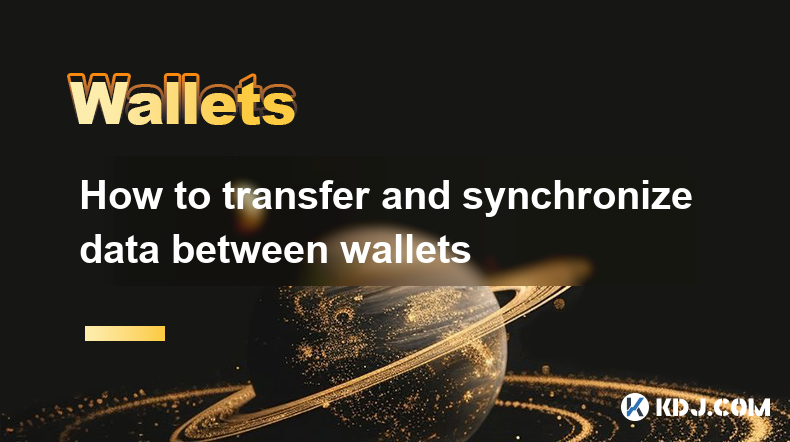
How to transfer and synchronize data between wallets
Feb 21,2025 at 12:25pm
Key Points:Understanding different wallet types and their capabilitiesIdentifying similarities and differences between walletsExploring options for transferring and synchronizing dataEnsuring data security and integrity during transferAddressing common challenges and troubleshooting tipsHow to Transfer and Synchronize Data Between Cryptocurrency Wallets...
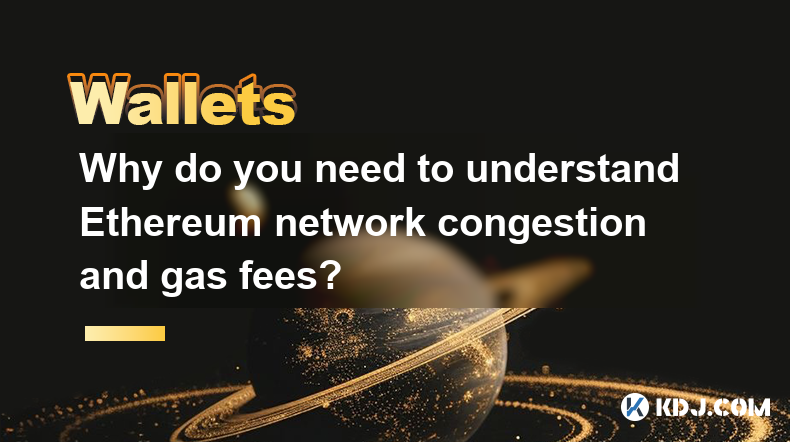
Why do you need to understand Ethereum network congestion and gas fees?
Feb 21,2025 at 04:48am
Key PointsUnderstanding Ethereum Network Congestion and Gas FeesGas Fees ExplainedFactors Affecting Network CongestionStrategies for Minimizing Gas FeesImpact of Ethereum UpgradesUnderstanding Ethereum Network Congestion and Gas FeesThe Ethereum network is a decentralized platform that hosts a vast ecosystem of decentralized applications (dApps), non-fu...
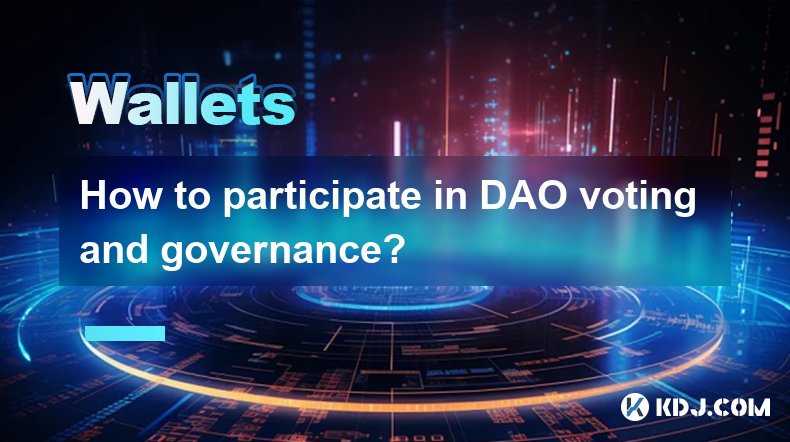
How to participate in DAO voting and governance?
Feb 21,2025 at 03:42pm
Key Points:Overview of DAO Voting and GovernanceUnderstanding DAO Structures and MembershipRole of DAO Tokens and Voting RightsParticipating in Voting and Proposal SubmissionLeveraging Governance Tools and PlatformsImpact of Voting Participation on DAO OutcomesBest Practices for Effective DAO GovernanceHow to Participate in DAO Voting and Governance1. U...
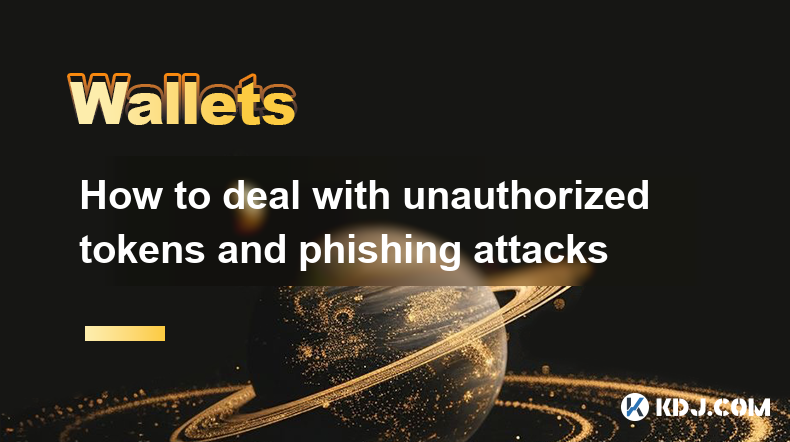
How to deal with unauthorized tokens and phishing attacks
Feb 21,2025 at 05:25am
Dealing with Unauthorized Tokens and Phishing Attacks in the Cryptocurrency CircleThe cryptocurrency market is rife with potential dangers, including unauthorized tokens and phishing attacks. To protect yourself from these threats, it's crucial to take proactive measures and be vigilant in your online activities.Key Points:Unauthorized Tokens: Tokens cr...
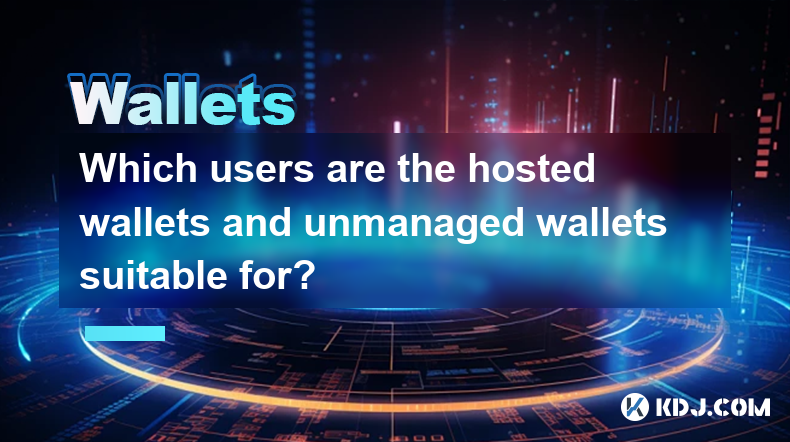
Which users are the hosted wallets and unmanaged wallets suitable for?
Feb 21,2025 at 12:00am
Key PointsDefinition and Characteristics of Hosted Wallets and Unmanaged WalletsAdvantages and Disadvantages of Hosted Wallets and Unmanaged WalletsDetermining Suitability for Hosted Wallets and Unmanaged WalletsExamples of Hosted Wallets and Unmanaged WalletsFrequently Asked Questions and AnswersHosted WalletsDefinition: A hosted wallet is a cryptocurr...
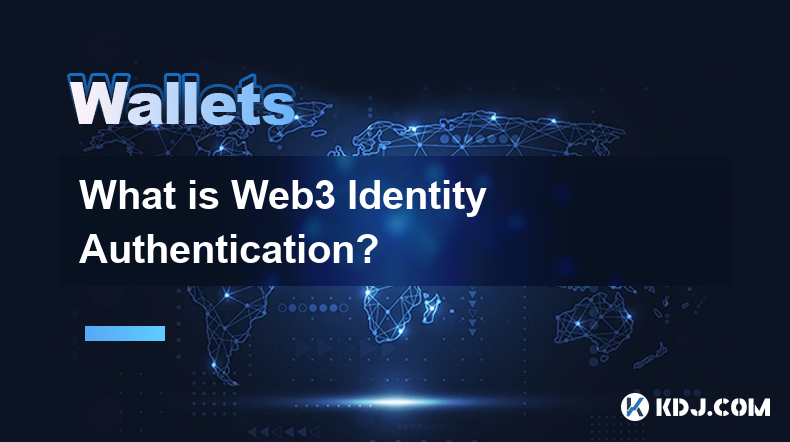
What is Web3 Identity Authentication?
Feb 21,2025 at 06:12am
Key Points:Web3 identity authentication revolutionizes online identity management.Decentralized Identifiers (DIDs) and Verifiable Credentials (VCs) provide secure and privacy-enhancing alternatives to traditional methods.Self-sovereign identity enables individuals to fully own and control their digital identities.Blockchain technology underpins Web3 ide...

How to transfer and synchronize data between wallets
Feb 21,2025 at 12:25pm
Key Points:Understanding different wallet types and their capabilitiesIdentifying similarities and differences between walletsExploring options for transferring and synchronizing dataEnsuring data security and integrity during transferAddressing common challenges and troubleshooting tipsHow to Transfer and Synchronize Data Between Cryptocurrency Wallets...

Why do you need to understand Ethereum network congestion and gas fees?
Feb 21,2025 at 04:48am
Key PointsUnderstanding Ethereum Network Congestion and Gas FeesGas Fees ExplainedFactors Affecting Network CongestionStrategies for Minimizing Gas FeesImpact of Ethereum UpgradesUnderstanding Ethereum Network Congestion and Gas FeesThe Ethereum network is a decentralized platform that hosts a vast ecosystem of decentralized applications (dApps), non-fu...

How to participate in DAO voting and governance?
Feb 21,2025 at 03:42pm
Key Points:Overview of DAO Voting and GovernanceUnderstanding DAO Structures and MembershipRole of DAO Tokens and Voting RightsParticipating in Voting and Proposal SubmissionLeveraging Governance Tools and PlatformsImpact of Voting Participation on DAO OutcomesBest Practices for Effective DAO GovernanceHow to Participate in DAO Voting and Governance1. U...

How to deal with unauthorized tokens and phishing attacks
Feb 21,2025 at 05:25am
Dealing with Unauthorized Tokens and Phishing Attacks in the Cryptocurrency CircleThe cryptocurrency market is rife with potential dangers, including unauthorized tokens and phishing attacks. To protect yourself from these threats, it's crucial to take proactive measures and be vigilant in your online activities.Key Points:Unauthorized Tokens: Tokens cr...

Which users are the hosted wallets and unmanaged wallets suitable for?
Feb 21,2025 at 12:00am
Key PointsDefinition and Characteristics of Hosted Wallets and Unmanaged WalletsAdvantages and Disadvantages of Hosted Wallets and Unmanaged WalletsDetermining Suitability for Hosted Wallets and Unmanaged WalletsExamples of Hosted Wallets and Unmanaged WalletsFrequently Asked Questions and AnswersHosted WalletsDefinition: A hosted wallet is a cryptocurr...

What is Web3 Identity Authentication?
Feb 21,2025 at 06:12am
Key Points:Web3 identity authentication revolutionizes online identity management.Decentralized Identifiers (DIDs) and Verifiable Credentials (VCs) provide secure and privacy-enhancing alternatives to traditional methods.Self-sovereign identity enables individuals to fully own and control their digital identities.Blockchain technology underpins Web3 ide...
See all articles





















































































